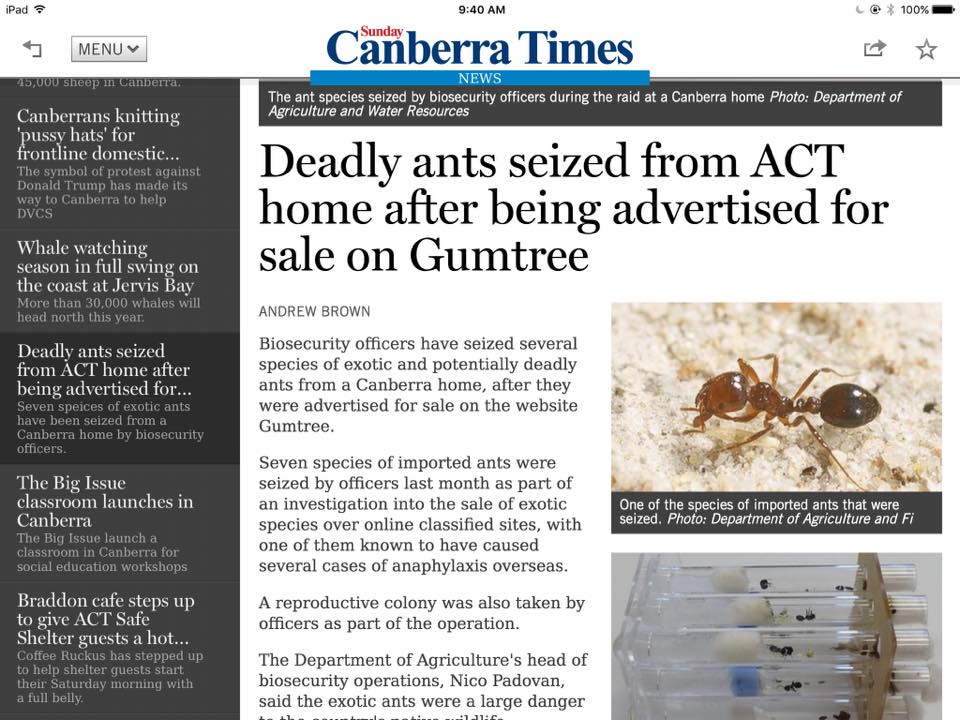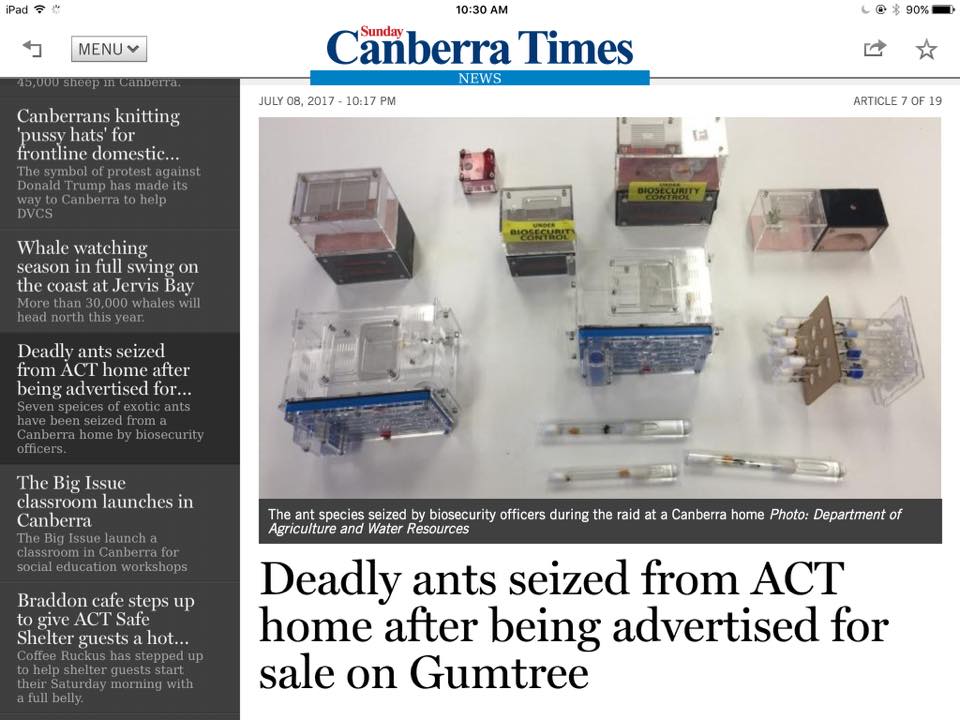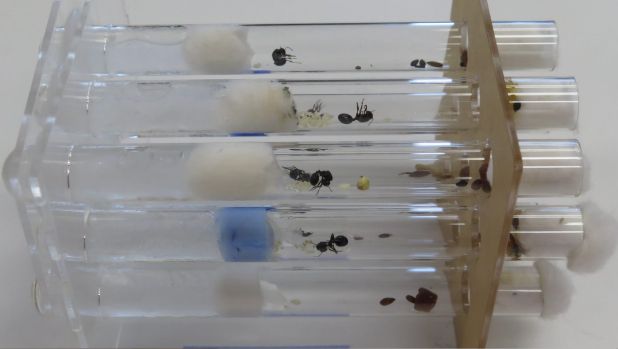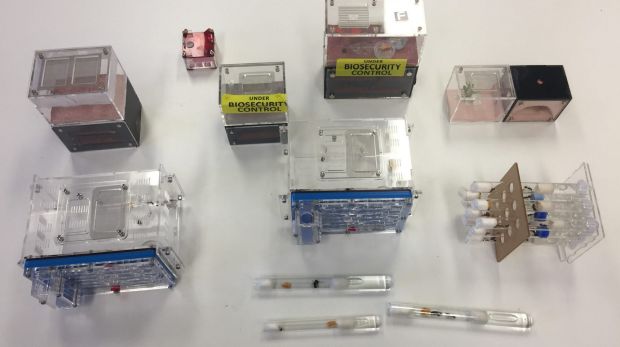Dangerous Invasive Ants Seized From Australian Seller
Several months ago it came to the attention of members of the Australian Ant Keepers group on Facebook that an individual was supposedly selling exotic ants including Tetraponera rufonigra and Messor arenarius. The group has a strict zero tolerance policy for individuals who break the law by involving themselves with the unregulated trade of exotic and invasive animals. This issue resulted in members who expressed interest in purchasing the ants being immediately banned from the group and then the issue was promptly reported to the relevant authorities. After months of silence from authorities surrounding their investigation it seems now that there is some justice being served.
According to this Canberra Times article the individuals house was found to have seven species of imported exotic/invasive ants in their possession. This includes one of the most invasive genera in the world, Solenopsis, also known as the fire ant. It is unclear whether the intention was to sell all of these species or if some were part of their private collection. However judging by the formicariums seen in the images released by Department of Agriculture and Water resources it could be a reasonable assumption that many of the ants were part of a private collection. Currently not all of the species found have been identified.
The reason this matter is taken so seriously here in Australia is that we has a very delicate ecosystem. Our climate is ideal for numerous invasive species to thrive in if they were released into the wild (purposefully or accidently). Australia takes these matters of biosecurity so seriously in fact that the maximum penalty for wildlife-trade offences under the Environment Protection and Biosecurity Conservation Act is 10 years in prison and a $180,000 fine for individuals.
This goes to show you that if you re involved in a hobby where you deal in animals whether it be ants, snakes, reptiles, amphibians, invertebrates etc. that being an active and vigilant individual can help protect our delicate ecosystem and prevent the kind of outbreaks that Australia has seen with animals like the Cane Toad and Fire ant.
















